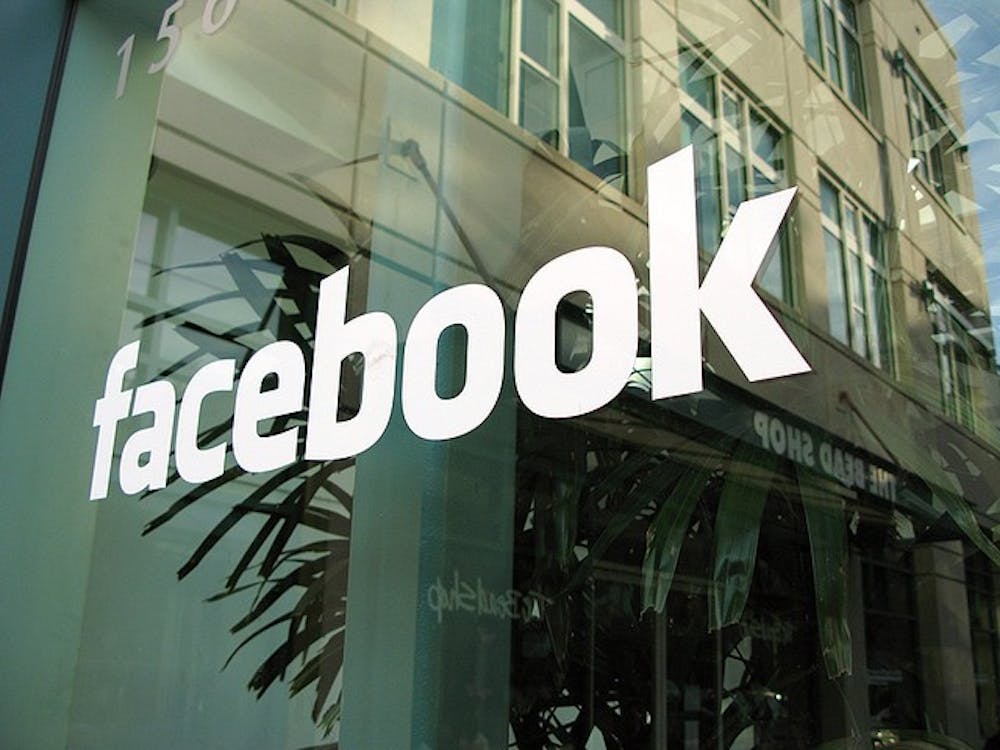Each week in UnWired, columnist Sophia Barnes will bridge the gap between Silicon Valley and AU, exploring issues of technology as they intersect with the AU community.
DON’T DO THIS
Give away your data freely and thoughtlessly.
Can you guess the three things that Google, Facebook, Instagram, Twitter, Tinder, YouTube, LinkedIn and Snapchat have in common?
They all have:
1. Incredible popularity
2. A net worth larger than that of my house
3. A free service – you don’t have to pay for their most basic services.
Considering that Google makes my academic and professional life possible, and Facebook facilitates my social life, I’m getting a huge bargain. A 30 gigabyte hard drive, a planner/calendar and the Microsoft Office Suite costs at least $250. Google does not charge for these or hundreds of other services from email to navigation to photo editing.
But we know that Google is stinking rich.
Facebook revenues exceeded $7 billion in 2013, which happens to be a billion times the amount of money in my checking account, or 3889 times what most of us will make in our entire lives.
So how does the milkman cash out when he gives away the cow for free?
Well, these companies aren’t selling a service. They are selling access you, your eyeballs and your data.
Because economics is my second major, I’m now asking two questions:
*How much value does Google, Facebook, Tinder, etc. add to my life, in dollars?
*What is the value of my personal information, in dollars?
As long as I’m getting a good deal – getting more than I give – I’m really happy. But deciding on the value of my data is a complicated decision requiring a lot of forethought.
Let’s wade through the three main points of when Facebook can share data, from their Data Use Policy: “We don’t share information we receive about you with others unless we have:
received your permission; given you notice, such as by telling you about it in this policy; or removed your name and any other personally identifying information from it.”
That seems like a very reasonable and fair policy. However, Facebook has more freedom to share your data than it would seem, based on this policy.
In their privacy policy, Facebook says, “We share your information with third parties when we believe the sharing is permitted by you, reasonably necessary to offer our services, or when legally required to do so.”
By using the website, you have satisfied the first criteria for Facebook to share your data.
By clicking that you “agree to terms and services,” Facebook has given you due notice about sharing your data (see the half sentence: “such as by telling you about [sharing your data] in this policy).
The third criteria is more complicated. Anonymizing data means any information is severed from your face and identity – so what’s the big deal? Jure Leskovek at Stanford describes the process of anonymization.
Basically, Facebook assigns your account an ID number. When they give your data to a third party – which they can do for 11 different reasons= 322339455300 at least – you are no longer Bob Benson or Jane Doe. You become a string of digits. But Facebook still has a master list connecting that ID to your name – and some of the information given out simply can’t be completely anonymized (like photos or certain messages).
Basically, Facebook can give up your personal information for many reasons, and almost every user has already consented. And while that information is anonymized, the process is imperfect. If you use Facebook, don’t willingly be blind to this information.
DO THIS
Educate yourself by downloading Facebook’s library of your personal data. Yes! It is possible.
The solution to potential privacy invasions is not necessarily “give up Facebook.” You have to weigh the value of your privacy against the value the service adds to your life.
Facebook allows you to download all of the data files concerning you, and it’s not difficult. Simply go to your settings. Under the “general” tab, you can click “Download a Copy of your Facebook Data.” They will email it to you pretty quickly.
What does the file contain? Transcripts of your messages. Your photos. A list of every Facebook event you were ever invited to. And a list of hashtags that they provide to advertisers (Turns out, Facebook thinks I really, really love Weezer). There is a list of all Facebook ads you ever clicked on. There’s more than that in those files – check it out for yourself.
At best, you’ll get a laugh from looking at the data – old messages and silly events from high school. At worst, you’ll rethink how much your personal information is worth.





